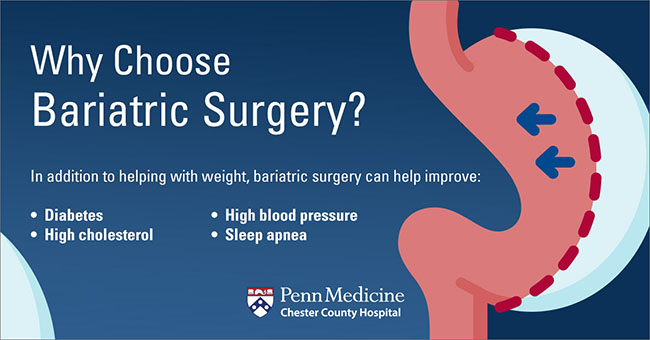
Can I drink alcohol after bariatric surgery? What about eating solid foods? And when can I start exercising again? These questions are all good ones — and the answer can have a big impact on your recovery after bariatric surgery.
Bariatric surgery (also called weight loss surgery) can be a good option for people with a high body mass index and a weight-related health condition. If you’ve decided to undergo weight loss surgery, you may find yourself looking for
answers about bariatric surgery, how it can help you, and the recovery process as well.

The success of your bariatric surgery will depend on your post-surgery care techniques. To get the best results, you’ll want to take the right steps along the way during your recovery.
Whether you are looking for guidance following your own surgery or to support a loved one after theirs, these do’s and don’ts are a great place to start.
What to Do After Bariatric Surgery
After your bariatric surgery, you'll likely spend the next one to three days in the hospital. During this period, your care team will closely observe your condition and focus on helping you manage pain.
You can resume your normal activities after four to six weeks post-surgery, but you'll have to make the following lifestyle changes to recover fully.
DO: Eat Nutritious Meals Full of Protein
Your diet after weight loss surgery is very specific, and it’s important to follow the guidelines set by your provider and care team.
“Throughout each phase of your recovery, protein is key,” says William Yi, MD, MSEd, FACS, Bariatric Surgeon at Chester County Hospital. “Remember to eat and chew your food slowly and thoroughly. Then, as you recover, especially in the early stages, only eat a little at a time. It will take time to figure out what your “new full” feels like, so take your time at mealtime.”
During the first two weeks after bariatric surgery, you will be on a fully-liquid diet. In weeks two through four your diet graduates from liquid to puree, mostly made up of protein shakes. Then in weeks five through six after surgery, you can begin including whole foods in your meals like soft veggies, fruits, proteins, and grains. After seven weeks, you can return to your regular diet as it's healthy and dietician-recommended.
DO: Get Active
Exercising is a key part of recovering from bariatric surgery. Exercising has multiple benefits after surgery — it can speed up your recovery time, keep the weight off, and also build healthy habits that improve overall health. Talk to your provider before jumping into intense workouts, but you’ll be good to start walking just a few hours after getting out of surgery.
DO: Get Moral and Physical Support
It’s important to have your friends, family, and loved ones support you as you adapt to your lifestyle changes post-surgery. Also, you can join support groups to help you navigate the physical and mental challenges of weight loss surgery.
“Support groups, like our virtual Bariatric Surgery Support Group, allow you to talk about your journey, and share your struggles and victories with others who can relate,” explains Dr. Yi. “Having a support system to encourage you can help keep you on track — increasing your chances of maintaining a healthy weight.”
DO: Prioritize Follow-Up Appointments
After bariatric surgery, follow-up appointments are an important way to stay on top of your health. Some hospitals will schedule an initial follow-up video about three weeks after your discharge. During the first year after surgery, you can expect to touch base with your provider and care team often. After that, you will continue to meet with them at least once a year.
What Not to Do After Bariatric Surgery
While many activities can speed up and support your recovery, some activities can slow down your recovery, too. Here are some tips about what to avoid as you recover from bariatric surgery.
DON’T: Overdo It
After bariatric surgery, you may find yourself with more energy — and you may be excited to jump right into normal life. It’s important to take it easy and to build your strength and stamina. Wait a month before beginning to lift weights and go for low-impact exercises like swimming, cycling, and walking.
DON’T: Get Pregnant
It's not advisable to attempt having a baby in the first 18 months after bariatric surgery. After bariatric surgery, your body is lacking the vitamins and nutrients a baby would need to grow. To ensure your weight loss success and the safety of a fetus, you’ll want to have a birth control plan in place for 12 to 18 months after surgery.
DON’T: Forget Your Vitamins
Getting your vitamins each day is a key part of your health all the time, but it’s especially important after bariatric surgery. You will need to make taking a multivitamin a part of your routine for the rest of your life to maintain important vitamin levels like calcium, iron, and vitamin D. Your provider may make recommendations for multivitamins and will order lab tests each year to see if there are any vitamins you may need more of.
DON’T: Drink Alcohol
After bariatric surgery, your metabolism will change which can cause higher and faster spikes in your blood alcohol levels than normal. Alcohol consumption also puts you at high risk of low blood sugar and weight gain. Avoid drinking alcohol for the first six months after bariatric surgery.
Your Bariatric Surgery Team and Your Recovery
With bariatric surgery, your journey doesn't end once you leave the hospital. Like every other medical procedure, your recovery largely depends on your habits and activity after surgery. From attending your appointments to getting a good amount of physical activity, you have a lot of control over your recovery process.
Learn more about Penn Bariatric and Weight Loss Surgery at Chester County Hospital, or reach out to your primary care provider or specialist for information about your options.